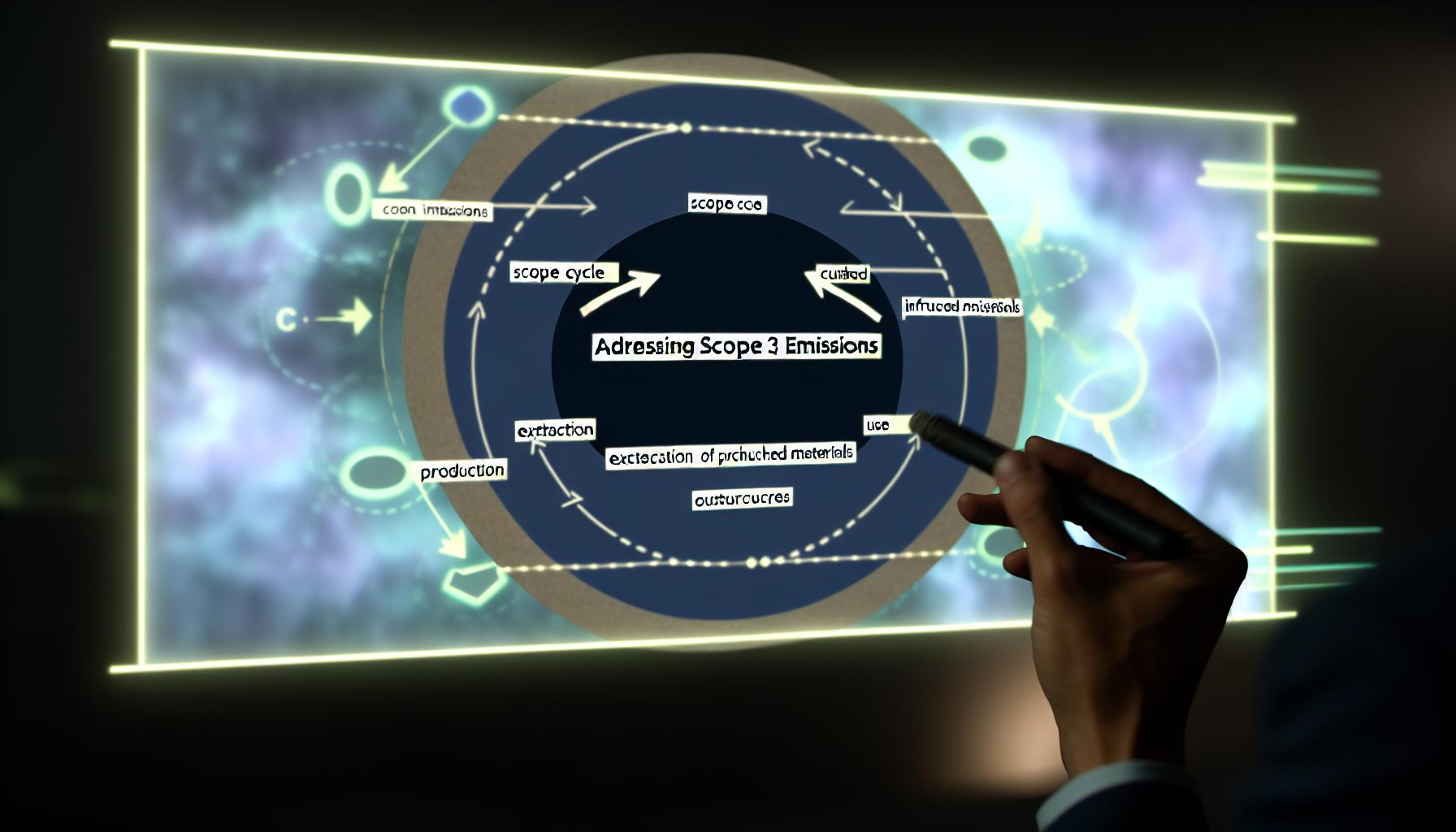In today's world, where environmental sustainability is becoming increasingly crucial, measuring and reducing carbon emissions across the entire supply chain is a significant challenge for many businesses. Scope-3 emissions refer to indirect greenhouse gas emissions in an organization's value chain, including upstream and downstream activities.
The need for accurate and detailed insights into Scope-3 emissions has never been more pressing. Fortunately, we understand the challenges and have taken an innovative approach to address this using Carbon Circle.
We are launching a beta product to make tracking easier. "Our beta product, designed to revolutionize how businesses track and manage their carbon footprint, will provide a comprehensive solution for tackling Scope-3 emissions and driving sustainable practices across industries."
Introducing Carbon Circle
Carbon Circle is an innovative platform that harnesses the power of AI to provide unparalleled visibility into supply chain emissions. Carbon Circle offers precise calculations for emissions at the individual line item level, making it easier for businesses to track and reduce their environmental impact effectively. Click this link (http://www.zerocircle.eco/carboncircle) to learn more about it.
Why it is Important to Use Supply Chains and Scope3
It is essential to use supply chains and consider Scope 3 emissions for several reasons:
Comprehensive Carbon Footprint: Scope 3 emissions, which include activities related to purchased goods and services, their use and disposal, and other indirect emissions, often comprise most of an organization's total emissions footprint. By ignoring these emissions, companies may not completely understand their carbon impact.
Risk Management: Understanding and managing Scope 3 emissions can help companies identify and mitigate potential climate-related risks associated with their supply chain and product use. This is particularly important as companies' net-zero target claims are scrutinized increasingly.
Regulatory Compliance: As regulations and expectations around climate disclosure and reduction targets evolve, companies may be required to report and reduce Scope 3 emissions. Proactiveness in this area helps companies stay ahead of potential future requirements.
Reputation and Valuation: Companies prioritizing environmental sustainability, including managing Scope 3 emissions, can improve their reputation and potentially increase their valuation. This is particularly relevant as consumers and investors increasingly demand more transparency and action on climate issues.
Collaboration and Partnerships: Addressing Scope 3 emissions often requires cooperation with suppliers and partners, which can lead to shared benefits such as cost savings and operational efficiencies.
Considering Scope 3 emissions and working with supply chains is crucial for companies to comprehensively understand their carbon footprint, manage climate-related risks, comply with potential future regulations, enhance their reputation, and collaborate with partners to achieve shared sustainability goals.
Living Seas is one of the Best Example
Living Seas, in collaboration with Zero Circle, is addressing Scope-3 emissions through various sustainable practices in aquaculture.
By implementing a contained land-based Recirculating Aquaculture System (RAS) with efficient water recycling and waste treatment, Living Seas minimizes environmental impacts associated with traditional aquaculture methods. This approach ensures responsible practices from fish feed ingredients to limited use of ocean water, effectively mitigating detrimental environmental effects.
Additionally, Living Seas optimizes energy use, reduces fresh water usage, and implements technologies like liquified nitrogen freezing to lower carbon emissions in transportation. These efforts contribute to the overall sustainability of aquaculture and help protect marine ecosystems while meeting the increasing global demand for seafood.
Importance of Sustainable Practices in Aquaculture and Supply Chains
Sustainable aquaculture practices are crucial, especially considering supply chains and Scope 3 emissions. In Living Seas, where a significant portion of emissions is attributed to their upstream supplier providing feed, it becomes evident that addressing sustainability at every stage of the production chain is essential.
Story Illustration:
As we analyzed the various suppliers and products used for the RAS fish productions, we discovered that most of the emissions stem from the feed supplied by an upstream partner. Living Seas also discovered that most of its emissions stem from the feed provided by an upstream partner.
Living Seas demonstrates a keen awareness of optimal resource allocation by pinpointing areas of highest utilization and strategically identifying opportunities for enhancement in the future. This proactive approach highlights their ability to analyze current trends and showcases their commitment to continuous improvement and innovation.
By strategically estimating its potential for growth and development, Living Seas is laying a strong foundation for maximizing operational efficiency and effectiveness and attracting interest from sustainability-linked investors looking to support initiatives with a positive environmental impact. This analysis will play an important role in guiding future investments that align with the organization's sustainability goals, fostering long-term success and progress in a constantly evolving industry.
To delve deeper into how Living Seas is leveraging these strategies and attracting sustainability-linked investors, you can explore a detailed case study on their approach at the following link: Living Seas Case Study. The case study provides valuable insights into the organization's efforts and successes in promoting sustainability while driving growth and innovation.
This holistic approach underscores the importance of considering Scope 3 emissions and supply chain sustainability in achieving proper environmental stewardship.
Key Features and Benefits
Detailed Emissions Summary:
Carbon Circle provides a comprehensive breakdown of your carbon footprint, categorizing CO2 emissions into distinct categories such as product and transport. This thorough analysis empowers businesses to make informed decisions regarding their sustainability practices.
Seamless Integration:
The solution seamlessly integrates with existing systems, ensuring a smooth transition to a more sustainable operational model. Carbon Circle delivers accurate CO2 footprint analyses using proprietary algorithms and industry-standard emission factors.
Actionable Insights:
From procurement analysis to supplier insights, Carbon Circle offers actionable recommendations that guide businesses toward more sustainable practices. By leveraging the data provided by Carbon Circle, companies can make smarter purchasing decisions and engage in impactful sustainability initiatives.
Revenue Opportunities:
Carbon Circle helps uncover business revenue opportunities beyond measuring and reducing emissions. By investing in sustainable supply chain initiatives or purchasing carbon credits, companies can showcase their environmental leadership and attract eco-conscious customers, and this is critical for showing ROI as part of Scope-3 programs.
Take the Next Step
Businesses can take advantage of Carbon Circle's transformative power by signing up, testing it on the website with some sample data, and contacting us for more details.
Accelerate your Scope-3 sustainability with Carbon Circle today!



